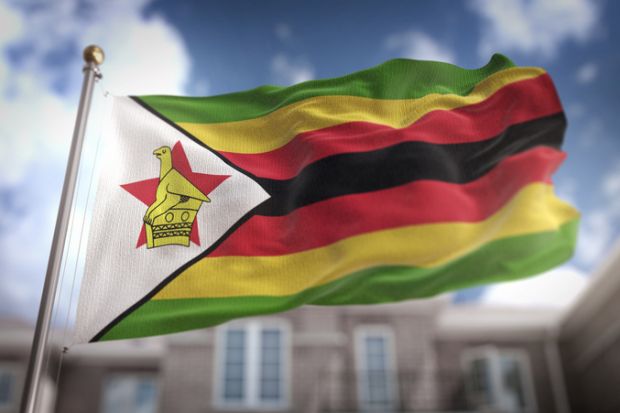It is unclear what the future might hold for higher education in Zimbabwe. Robert Mugabe’s resignation this week after 37 years of being in power was preceded by the students and staff of the University of Zimbabwe demonstrating against him.
When Mugabe became the first president of the independent Zimbabwe in 1980, one of his early speeches proclaimed education as a basic human right. Highly educated himself, he became the chancellor of all Zimbabwean universities. However, long before the fateful military intervention last week, it appears that he had lost all credibility among academics and students.
Since independence, Zimbabweans have been very proud of their educational record. Zimbabwe is, according to some reports, the best-educated country in Africa, with literacy levels over 90 per cent – putting it ahead of South Africa, Kenya and Namibia. However, its population’s access to higher education is about 8 per cent, far behind South Africa (with 18 per cent access).
Zimbabwe now has 20 universities and many colleges. Prior to independence, the University of Zimbabwe was the country’s first and only university. It was founded in 1952 in the then Rhodesia (University College of Rhodesia and Nyasaland) and was set up by a special licence with the University of London.
The institution’s pride in high standards suffered a severe blow when, in 2014, it granted a degree of doctor of philosophy (PhD) in sociology to Mugabe’s wife, Grace, who had no formal educational qualifications, had not attended the university nor written a thesis. She registered two months before she was granted the degree.
An academic at the university, who asked to remain anonymous, said to me today: “We knew the whole system became eroded, but Grace Mugabe’s degree was both an insult and a blow to us all. Not only does she spend tens of thousands of dollars on one shopping spree in Paris, when I have no money to hire staff or offer any scholarships at all, now she makes a mockery of us all. They have corrupted the whole system. All key appointments have been political for 30 years. This is so shameful”.
One of the demands of the students protesting this week was that Grace Mugabe’s doctoral degree be withdrawn.
Celebrations on the streets after Mugabe resigned were mixed with a sense of unease. According to the official statistics agency, Zimbabwe’s unemployment rate stands at 11.3 per cent, but independent analysts say that the true unemployment rate is north of 90 per cent. Access to higher education is the domain of the privileged few, whose families manage to pay the fees, which cost about US$1,000 a term. This astronomical amount is simply unthinkable for many young people in rural areas.
A young woman from the village of Domboshava, Precious Mashvinge, is studying a four-year human resources degree at Midlands State University. She says: “I could never afford to come here. I did well at school but there are no scholarships or a loans system. I would have had to stay home and work in the field or hope somebody would marry me. Luckily, a relative abroad can pay for my tuition fees.”
Precious is lucky, but many bright young people simply never make it out of the starting blocks. Elton Mjanana, director of the Zimbabwe International Film Festival and its famous Arts Festival, adds: “I am unimpressed with the stories of our high levels of education. It’s high time these translated into jobs and opportunities. I did not get to go to university. My family could not afford it at all.”
The minister for higher education, Jonathan Moyo, who has been associated with the Mugabe regime for decades, appears to have disappeared since the military intervention of 14 November. He is highly educated himself with a real doctorate from the University of Southern California.
Moyo has been a very powerful figure in Zimbabwean politics, with a chameleon-like ability to reinvent himself. He was ousted many a time from the government but has always found a way back. British historian Terence Ranger identified Moyo as the engineer of so-called “patriotic” journalism following the land reforms of 2000. This practice framed patriotism as a gesture against colonial and post-colonial/Western history and politics, and amounted to an all-pervasive system in which the enemy was identified as anybody who was against the ZANU-PF party.
Whether this is a time for a new narrative and a new leadership at the helm of higher education remains to be seen.
Agnieszka Piotrowska is a reader in film practice and theory at the University of Bedfordshire, and the author of Black and White: Cinema, Politics and the Arts in Zimbabwe. Her work has been shortlisted for the 2017 Times Higher Education Award for Excellence and Innovation in the Arts.
Register to continue
Why register?
- Registration is free and only takes a moment
- Once registered, you can read 3 articles a month
- Sign up for our newsletter
Subscribe
Or subscribe for unlimited access to:
- Unlimited access to news, views, insights & reviews
- Digital editions
- Digital access to THE’s university and college rankings analysis
Already registered or a current subscriber?










